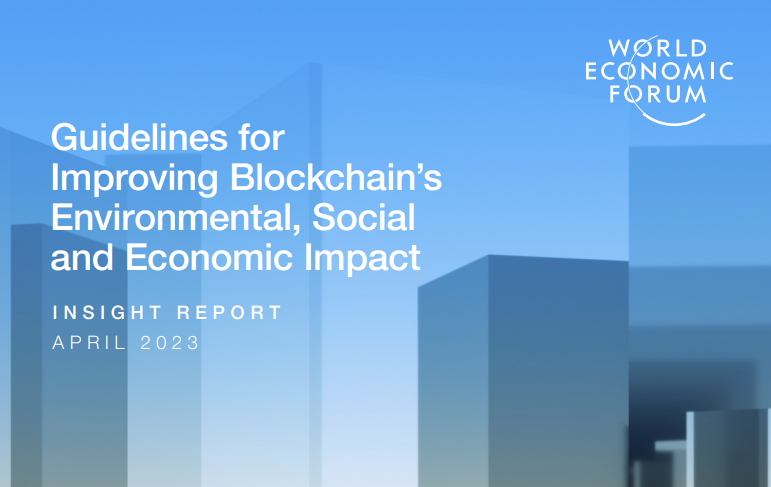
Guidelines for Improving Blockchain’s Environmental, Social and Economic Impact
The World Economic Forum (WEF) has released a Practical Guide to Improving Environmental and Social Responsibility and the Cost Efficiency of Blockchain-Based Technologies.
The guide is based on an overview of successful practices in the application of blockchain technologies in various industries, as well as their impact on the consumption of electricity and other resources.
Forum experts emphasize that in the context of the "green" transition, distributed ledger technologies are actively used in the energy sector, especially in the management of energy networks. At the same time, mining cryptocurrencies, which are also based on distributed ledger technology, requires high energy costs. To overcome the negative impact of blockchain on environmental sustainability, the WEF recommends paying special attention to the development of industry-specific methodologies for assessing and reporting on greenhouse gas emissions, in connection with the integration of blockchain into certain sectors of the economy.



